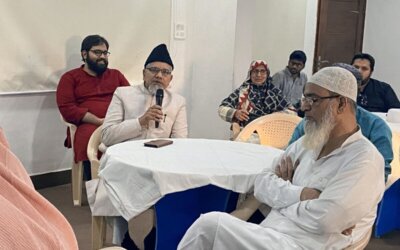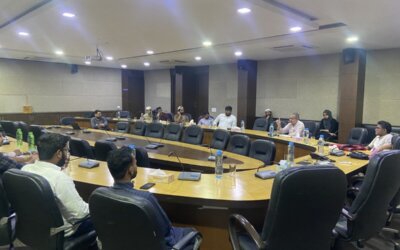SIO of India released Delhi Declaration on RTE at Press Club of India. Education has always been important and it is crucial for the entire developmental process of a country, its welfare and progress. As we know that RTE act completed 6 years, we had organized a social auditing of 12 states (Bihar, Uttar Pradesh, Telangana, Maharashtra, Madhya Pradesh, Karnataka, Kerala, Tamil Nadu, Delhi, Rajasthan, Gujarat, Jharkhand) in the month of February, far reaching and serious discussions were made on the prevailing conditions in Educational sectors as well as the proactive steps needed to be taken to improve its condition. SIO being a pioneer student’s organization has made a thorough study and analysis on RTE.
Moreover SIO of India has come up with a Declaration on RTE titled “Delhi Declaration on RTE” where in the experts of RTE have penned down their points on RTE. SIO demands the government to implement RTE in its entirety. SIO National President Iqbal Hussain, Prof. Saleem Engineer, Prof. Janaki Rajan, Mr. Ambarish Rai, Mr. Inamurrahman, Mr. Abdul Wodud, Mr. Layeeq Ahmed and Mr. Thouseef Madikeri were present in the programme.
Delhi Declaration on RIGHT TO EDUCATION
Teachers
The issue of filling the vacant positions, gaps of teachers in all schools needs to be immediately addressed. Subject Knowledge and language proficiency considered to be the hall marks of good teaching. This must be made essential pre-requisite for first level screening for entry into teacher education programmes. Replacing the TET with an entrance test (Common Admission Test for Teacher Education-CATTE) for pre -service education will also safeguard pre service education from succumbing to pressures of training teachers for qualifying TET rather than for teaching. There is an urgent need to focus on providing at least two teachers as per the RTE norms to all single teacher Schools. Ensure each school; government, government aided and non-government schools maintain RTE norms related to provision of teachers and pupil teacher ratio.
Monitoring
Monitoring is essential to ensure accountability as well as efficient and effective functioning of Schools as per the RTE Provisions the National Commission for Protection of Child Rights (NCPCR) is responsible for monitoring the Act but with hardly any budgetary allocation. Monitoring of RTE is also weak due to lack of investment in processes of data collection and research. Adequate and appropriate resources must be allocated.
Awareness
The level of awareness on the various provisions of RTE Act among different primary stakeholders and the larger community is very poor. Therefore, massive awareness programmes need to be launched to ensure the Knowledge of RTE provisions. Massive programme to demystify the wrong notion on English learning and to create awareness and advantages of Mother tongue Education.
Civil Society
Massive programmes for the pro-active participation of civil society and primary stakeholders, including communities at various levels for the effective and meaningful implementation of the RTE Act.
Quality Education
A good supportive learning environment for quality education includes the need for good and adequate infrastructural facilities, and availability of qualified trained teachers. The Central government needs to reconsider fund allocations for states for elementary education in order to ensure best infrastructural facilities. Provide support for CCE to teachers in order to pay emphasis on learning outcomes of children and for teachers to understand & then implement CCE. Rebuild the Indian Education System on the lines of Neighborhood School System to ensure equitable and quality education for all children irrespective of their sex, caste, place of birth, social and economical status.
Budget
Raise the allocation on education to 6% of GDP. Government must pronounce a timeframe and fulfill the goals of Universalisation of Education.






0 Comments